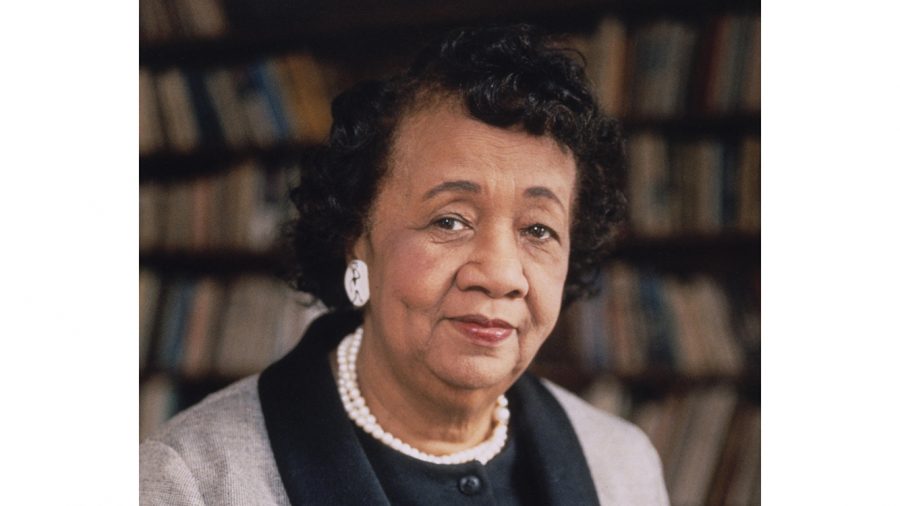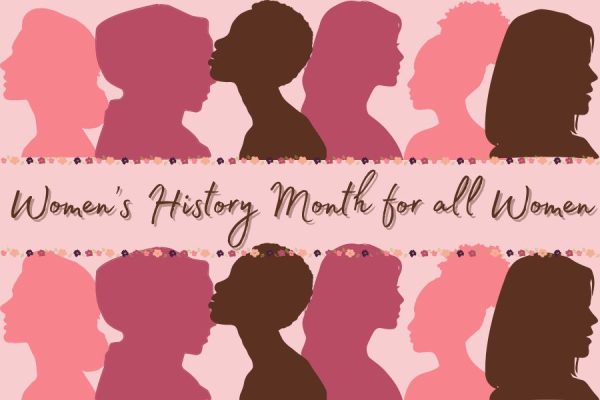Black History Month feature: Dorothy Height
Dorothy Height was an activist and administrator throughout the 20th century who started many institutions that pushed for both the rights of black Americans and of women in America.
Born in Richmond, Va. on March 24, 1912, Height grew up primarily in Pennsylvania, where she attended high school. There, she became a talented orator and a more politically-involved individual – her most avid efforts targeted lynching.
She attended New York University where she earned a bachelor’s degree in education and a master’s degree in educational psychology. In addition, she earned both within four years.
Higher education is encouraged in the modern era for sure, but let’s not forget the times. Height was a woman of color in the 1930s – this alone deserves admiration. According to “The Traditionally Black Institutions of Higher Education 1860 to 1982” published by the National Center for Educational Statistics, there were fewer than 34,000 black students enrolled at a higher education institution in 1936. Of that number, only 3,460 students earned a degree that year.
Despite being black and a woman, Height persevered through the conditions against her. This level of activism earned her the Freedom from Want Award from President Franklin D. Roosevelt in 1944. From 1947 to 1956, she served as the national president of Delta Sigma Theta Sorority, Inc.
Throughout the ‘40s and ‘50s, Height became a leader of the Harlem Young Women’s Christian Association, and she became the fourth president of the National Council of Negro Women, reigning from 1957-1998. There, she led the drive for voter registration among the African-American community and helped women enter Freedom Schools during the civil rights era.
Along with the National Council of Negro Women in 1964, Height also started an organization called ‘Wednesdays in Mississippi,’ where women of all races and religious backgrounds came to discuss their backgrounds, especially problems concerning the civil rights era.
This is a stark contrast to the more radical, yet effective, manners of communication from the African-American community to the laws which restricted their rights. To me, that organization united Jackson, MS in a way that seems nearly impossible. This forum seems to be the modern approach to issues regarding race and gender, but Height pioneered the way for civil discourse to become a method of learning nearly 60 years ago.
During the civil rights era, she also assisted with the March on Washington for Jobs and Freedom in 1963. She could not speak at the event since she was a woman, but she remained determined and united with the cause at hand – marching towards the front of the crowd.
Later in life, Height pushed further for desegregation while Dwight D. Eisenhower was president. During Lyndon B. Johnson’s term, she pushed for African-American women to be more represented in multiple government positions.
Height is also responsible for starting ‘Black Family Reunions’ in 1986 – celebrations of African-American traditions, honing in on the importance of the family structure – which are celebrated today among millions of people.
This all seems full-circle for me, seeing that my first assignment as a staff reporter was to cover the ‘Black Family Reunion’ hosted by the National Pan-Hellenic Council. Seeing the number of people involved in an event I had never heard about opened my eyes to a unified and proud culture on campus.
In 2004, Height received the Congressional Gold Medal, which was inscribed with a quote from her: “We African-American women seldom do just what we want to do, but always do what we have to do. I am grateful to have been in a time and place where I could be a part of what was needed.”
Dorothy Height died in 2010 and is known not only for her significant contributions to multiple civil rights organizations, but she is also remembered for her push for women’s rights and equal pay.
This may seem out of place for a white male to be writing a reflection on Dorothy Height, but I believe everyone, even those of different demographics, can benefit from understanding her personal accomplishments.
As students, we are all involved in organizations and have a degree to earn. Seeing what she was able to accomplish in multiple organizations in her professional career and earning two degrees in such a short time should be of paramount importance to any college student with similar involvement.
Noting her ‘Wednesdays in Mississippi,’ it is crucial that if we wish to see improvement in the campus community or in Hammond, we have to be willing to communicate in a respectful, honest and open-minded fashion. Height did not speak at the March on Washington – after every contribution she made to the civil rights movement – but she persisted and fulfilled her role as an active participant.
For the remainder of Black History Month, let us remember the life of a reverent civil rights activist who set the groundwork for organizations and celebrations that persist in the 21st century.
Your donation will support The Lion's Roar student journalists at Southeastern Louisiana University.
In addition, your contribution will allow us to cover our annual website hosting costs.
No gift is too small.

Jacob Summerville, a history and political science major, has worked at The Lion's Roar since September 2017. A native of Greenwell Springs, LA, Jacob...







